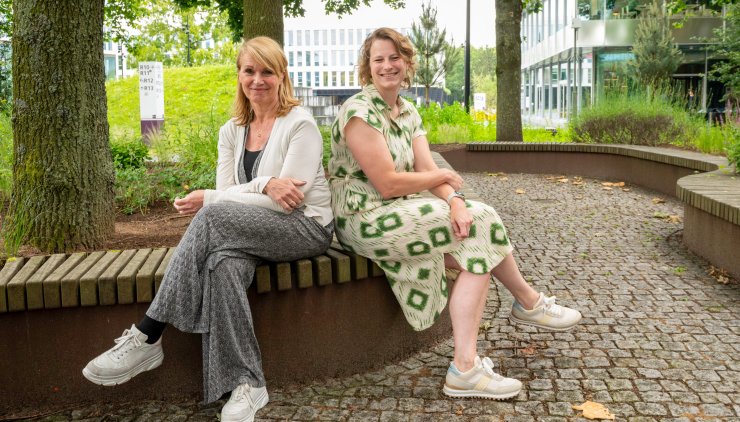-
8 juli
More 'neurodivergent' young people able to find a job due to Career Jumpstart grant

Project leader Manon Krabbenborg explains: 'We educate students, and they earn a wonderful diploma, sometimes with additional support. This support is available up to and including graduation, but after that, they are, bluntly put, on their own. That doesn’t always work.
Not all neurodivergent students find work, even if they have successfully completed a sought-after degree. That’s why we decided to support them during their internship and graduation, and for an additional year afterwards. We also help employers create an environment in which neurodivergent individuals can thrive.
According to co-project leader Marlou Heskes, society doesn’t always succeed in placing well-educated people in suitable positions. 'In short, we waste talent while businesses are crying out for skilled workers. Moreover, this issue affects many people. For instance, a staggering 55 percent of young men with autism are unemployed. Among young women with autism, the percentage is even higher. We must better utilise this potential.'
Earlier contact
According to Marlou, Manon, and their eight colleagues, the bar needs to be set much higher. Marlou states, 'Currently, at Career Jumpstart, we only support Fontys students and TU/e students, and only during the final year of their studies. In reality, that's like putting plasters on wounds. We can have a much greater impact on the well-being of neurodivergent students if we start engaging with them and providing support at the beginning of their studies. Furthermore, we aim to extend our support to secondary education and vocational education (mbo).'
Manon adds, 'They haven't yet developed an understanding of their career competencies and what can help them navigate the dynamic job market and thrive in their environment. Currently, this aspect only receives attention towards the end of their academic journey. Starting earlier with our developed educational offerings focused on self-awareness and career competencies will enhance the effectiveness of our efforts.'
Expansion of responsibilities
Furthermore, there is an ambition to support neurodivergent students in secondary education and vocational education (mbo). Manon explains, 'This would mean a significant expansion of our responsibilities. We cannot manage this with our current staff capacity. We aim to establish four teams: one for students, one for teachers, one for professionals in the field, and one specifically for secondary school students. We will collaborate closely with these groups, particularly neurodivergent youth, using design thinking methodologies. Our goal is to support approximately 1,900 neurodivergent students and pupils with this.'
